Wrapping your head around the financial landscape of running a business in London can be challenging.
As businesses grow and regulations become more complex, having the right accounting software is crucial.
The right tools can streamline financial management, ensure compliance, and provide valuable insights into your business’s performance.
Take a look at our picks of essential accounting software for London businesses, detailing their features, benefits, and how you can get started.
The Importance of Accounting Software
Accounting software is a powerful tool that automates and simplifies financial management tasks. From tracking expenses and revenues to managing payroll and generating financial reports, these tools are indispensable for modern businesses.
Using accounting software has several benefits:
- Accuracy: Automated calculations reduce the risk of human error.
- Efficiency: Streamlined processes save time and resources.
- Compliance: Built-in compliance features ensure adherence to tax laws and financial regulations.
- Insight: Real-time data and reporting provide valuable business insights.
In London’s competitive business environment, leveraging technology to manage your finances can give you a significant advantage.
Top Accounting Software for London Businesses
Choosing the right accounting software depends on your business’s size, industry, and specific needs. Here are some of the top accounting software solutions for London businesses in 2024:
QuickBooks Online is a popular choice among small and medium-sized businesses due to its comprehensive features and user-friendly interface. It offers a range of tools to manage invoicing, expenses, payroll, and taxes.
Features:
- Invoicing and Payments: Create and send professional invoices, and track payments.
- Expense Tracking: Automatically import and categorise expenses from your bank accounts.
- Payroll: Integrated payroll processing with automatic tax calculations and filings.
- Reporting: Generate detailed financial reports, including profit and loss statements and balance sheets.
- Integration: Integrates with numerous third-party apps to extend functionality.
Example:
- A retail store in London uses QuickBooks Online to manage daily sales, track inventory, and handle payroll for its staff. The software’s real-time reporting helps the owner make informed decisions about stock levels and staffing needs.
Xero is another highly-regarded accounting software known for its intuitive design and robust features. It’s particularly popular among small businesses and startups.
Features:
- Real-Time Collaboration: Multiple users can access and update financial data simultaneously.
- Bank Reconciliation: Automatically import and categorise bank transactions for quick reconciliation.
- Invoicing: Create and send custom invoices with online payment options.
- Inventory Management: Track inventory levels and costs in real-time.
- Mobile App: Manage your finances on the go with Xero’s mobile app.
Example:
- A London-based tech startup uses Xero to manage its finances, allowing the founders to collaborate with their accountant seamlessly. The real-time data access helps them stay on top of their cash flow and financial health.
Sage is a long-standing name in the accounting software industry, known for its reliability and extensive feature set. Sage Business Cloud Accounting is designed to meet the needs of small to medium-sized businesses.
Features:
- Cash Flow Management: Monitor and forecast cash flow to manage finances effectively.
- Invoicing and Payments: Create professional invoices and accept online payments.
- Compliance: Stay compliant with UK tax laws and submit VAT returns directly to HMRC.
- Project Management: Track project income and expenses for better financial oversight.
- Mobile Access: Manage your business finances from anywhere with the mobile app.
Example:
- A construction company in London uses Sage Business Cloud Accounting to manage project budgets, track expenses, and ensure timely invoicing. The software’s project tracking features help them stay on budget and meet client deadlines.
Zoho Books is part of the Zoho suite of business applications, offering a range of accounting and financial management features suitable for small to medium-sized businesses.
Features:
- Automated Workflows: Automate repetitive tasks like invoicing, payment reminders, and expense tracking.
- Multi-Currency: Handle transactions in multiple currencies with automatic exchange rate updates.
- Time Tracking: Track billable hours and project costs easily.
- Detailed Reports: Generate insightful reports on sales, expenses, and taxes.
- Integration: Integrates with other Zoho apps and third-party tools for extended functionality.
Example:
- A digital marketing agency in London uses Zoho Books to manage client billing, track project expenses, and automate payment reminders. The integration with Zoho Projects helps them keep all their project-related financial data in one place.
FreshBooks is known for its user-friendly interface and strong invoicing capabilities, making it an excellent choice for freelancers and small businesses.
Features:
- Invoicing: Create and customise professional invoices, and set up automatic payment reminders.
- Expense Tracking: Easily capture and categorise expenses with receipt uploads.
- Time Tracking: Track billable hours and link them to projects and clients.
- Payments: Accept online payments directly through invoices.
- Reports: Generate insightful reports to monitor business performance.
Example:
- A freelance graphic designer in London uses FreshBooks to invoice clients, track project hours, and manage expenses. The ease of use and automation features allow them to focus more on creative work and less on administrative tasks.
Choosing the Right Accounting Software
Selecting the right accounting software depends on several factors, including the size of your business, industry-specific needs, and budget. Here are some steps to help you choose the best solution:
Identify Your Needs: Evaluate your business requirements. Consider features like invoicing, expense tracking, payroll, and integration with other tools. For example, if you run an ecommerce business, inventory management might be crucial.
Compare Features: Review the features offered by different software solutions. Create a comparison chart to see which software meets most of your needs.
Consider Scalability: Choose software that can grow with your business. As your business expands, you’ll need more advanced features and capabilities.
Read Reviews and Testimonials: Check online reviews and ask for recommendations from other business owners. User feedback can provide valuable insights into the software’s reliability and customer support.
Test with a Free Trial: Most accounting software providers offer free trials. Use these trials to test the software’s functionality and ease of use before committing.
Getting Started with Accounting Software
Once you’ve selected the right accounting software for your business, follow these steps to get started:
Setup and Configuration:
Set up your accounting software by entering your business details, adding users, and configuring settings according to your needs. This may include setting up a chart of accounts, tax rates, and payment methods.
Import Data:
Import your financial data, such as bank transactions, customer and vendor details, and past invoices. Most software solutions offer tools or guides to help with data migration.
Train Your Team:
Ensure that your team is trained to use the new software effectively. Many providers offer tutorials, webinars, and customer support to help you get started.
Integrate with Other Tools:
Connect your accounting software with other business tools you use, such as CRM systems, payment gateways, and inventory management software, to streamline operations.
Regularly Review and Update:
Regularly review your financial data and update the software to ensure accuracy and compliance. Use the reporting features to generate insights and make informed decisions.
Conclusion
Choosing the right accounting software is essential for the success of your London business.
By leveraging advanced features, ensuring compliance, and gaining valuable insights, you can streamline financial management and focus on growing your business.
Whether you’re a small startup or an established enterprise, there’s an accounting software solution that fits your needs.
At Adroit, we’re here to support you in making the best financial decisions for your business.
Contact us today to learn how we can help you integrate and maximise the benefits of accounting software.
Click here to book your free consultation now.

